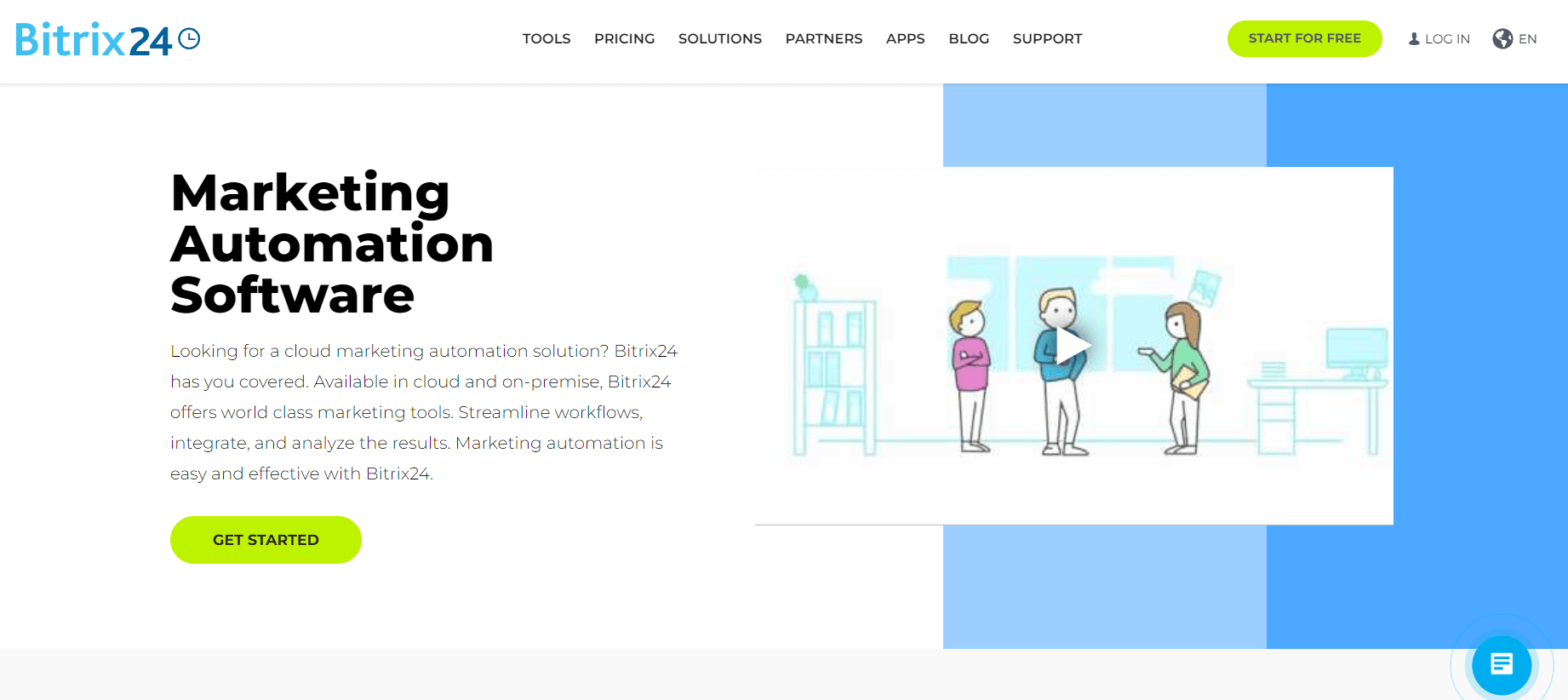In the world of business, time is money. That’s why any method or process that can save time and make your workflow more efficient is a valuable asset.
Automation is one such tool, and it can be especially useful in eCommerce businesses. In this article, we’ll explain what automation is and how you can use it to improve your eCommerce operations.
We’ll also take a look at some of the benefits of automation and offer suggestions on how to get started. So whether you’re just starting out in eCommerce or you’re looking for ways to streamline your current operation, read on for some helpful tips!
What is eCommerce Automation?
Ecommerce automation is the process of automating various tasks related to selling online. This can include everything from setting up an online store to managing inventory and processing orders. Automation can make it possible for businesses to sell online without having to invest in a lot of manpower or time-consuming processes. In many cases, ecommerce automation can help businesses improve their bottom line by reducing costs and increasing efficiency.
Ecommerce automation can take many different forms, but one of the most common is using software to automate tasks. For example, there are a number of software programs that can be used to manage inventory and track orders.
These programs can often be integrated with existing accounting and inventory management systems. Other common examples of eCommerce automation include using shipping software to automate the process of calculating shipping rates and printing labels, as well as using customer relationship management (CRM) software to automate customer service tasks.
While eCommerce automation can offer a number of benefits, it’s important to consider the potential downsides before implementing any automation solutions. One potential downside is that automated systems can sometimes be complex and difficult to use.
If businesses rely too heavily on automation, they may find that they’re not able to keep up with the pace of change or adapt to new situations as quickly as they could without automation.
Additionally, eCommerce automation can sometimes result in errors or inaccuracies if it’s not set up properly. For these reasons, it’s important to carefully consider whether eCommerce automation is the right solution for your business.
If you’re thinking about implementing eCommerce automation in your business, there are a few things to keep in mind. First, make sure you understand the different types of automation solutions available and how they might fit into your overall business strategy.
Second, be sure to test any automation solutions you’re considering before rolling them out company-wide. And finally, always monitor your automation solution to ensure it’s working as intended and making the impact you expect.
Ecommerce automation can be a great way to improve your business’s bottom line. But as with any business decision, it’s important to carefully consider all the pros and cons before implementing any automation solutions. By taking the time to understand eCommerce automation and how it works, you can make sure you’re making the best decision for your business.
How Can You Automate Your eCommerce Operation?
There are many different ways to automate your eCommerce operation. Depending on the size and complexity of your business, you may want to consider automation for tasks such as order processing, inventory management, customer service, and marketing.
One way to automate your eCommerce business is to use an online platform such as Shopify or Magento. These platforms provide everything you need to set up an online store, including a shopping cart, payment processing, shipping, and customer service tools. You can also find plugins and add-ons that will help you automate specific tasks such as accounting or email marketing.
Another option is to use a fulfillment service such as Shipwire or Fulfillment by Amazon (FBA). These companies will pick, pack, and ship your orders for you, which can save you a lot of time and effort. They can also provide valuable features such as real-time inventory tracking and returns management.
Finally, you may want to consider using some type of robotics or artificial intelligence (AI) to automate certain tasks in your ecommerce business. For example, there are now bots that can handle customer service inquiries, chat with website visitors, and even place orders on your behalf. AI can also be used for things like product recommendations and fraud detection.
No matter what type of automation you decide to use, the important thing is to choose solutions that will help you improve efficiency and scale your business. By taking some time to implement the right tools and processes, you can free up your time to focus on other areas of your business and ultimately grow your eCommerce operation.
Automation tools that integrate with Shopify Flow
Integrating your automation tools with Shopify Flow can help you streamline your ecommerce operations and get the most out of your workflow. Here are some of the best automation tools that integrate with Shopify Flow:
-Zapier: Zapier is a tool that allows you to connect different applications together and automate tasks between them. It has pre-built integrations with over 1,000 apps, including Shopify. With Zapier, you can set up automatic tasks like adding new customers to your mailing list or sending order information to your accounting software.
-IFTTT: IFTTT is another tool that lets you automate tasks between different apps. It also has a huge range of pre-built app integrations, including Shopify. With IFTTT, you can automate tasks like sending yourself a text message when a new order is placed on your store or backing up your Shopify data to Google Drive.
-Google Apps Script: Google Apps Script is a scripting language that lets you customize and automate Google apps like Gmail, Docs, and Sheets. You can use it to connect different applications together and automate tasks between them. For example, you could use it to automatically add new customers to your mailing list or send order information to your accounting software.
-Microsoft Power Automate: Microsoft Power Automate is a tool that allows you to automate tasks between different applications. It has pre-built integrations with over 300 apps, including Shopify. With Power Automate, you can automate tasks like sending yourself a text message when a new order is placed on your store or backing up your Shopify data to OneDrive.
-AutoWeb: AutoWeb is a tool that allows you to automate tasks on your website. It has a range of pre-built integrations with popular web applications, including Shopify. With AutoWeb, you can automate tasks like adding new customers to your mailing list or sending order information to your accounting software.
-Pipedrive: Pipedrive is a CRM tool that helps you manage your sales pipeline. It has an integration with Shopify that lets you automatically add new orders and customers from your store to Pipedrive. With Pipedrive, you can manage your sales pipeline, automate tasks like sending follow-up emails to customers, and track your store’s performance.
-HubSpot: HubSpot is a CRM tool that helps you manage your customer relationships. It has an integration with Shopify that lets you automatically add new orders and customers from your store to HubSpot. With HubSpot, you can manage your customer relationships, automate tasks like sending follow-up emails to customers, and track your store’s performance.
-Salesforce: Salesforce is a CRM tool that helps you manage your customer relationships. It has an integration with Shopify that lets you automatically add new orders and customers from your store to Salesforce. With Salesforce, you can manage your customer relationships, automate tasks like sending follow-up emails to customers, and track your store’s performance.
-Zendesk: Zendesk is a customer support tool that helps you manage your customer service. It has an integration with Shopify that lets you automatically add new orders and customers from your store to Zendesk. With Zendesk, you can manage your customer service, automate tasks like sending follow-up emails to customers, and track your store’s performance.
These are just some of the best automation tools that integrate with Shopify Flow. By integrating these tools with Shopify Flow, you can streamline your ecommerce operations and get the most out of your workflow.
Quick Links
- Clever Ways to (Ethically) Boost Ecommerce Store Sales
- Amazon Automation? How to Automate FBA Business
- Ecommerce Marketing Essentials: Guide &; A Must Read
Conclusion- What Is Ecommerce Automation? Focus on What Matters 2024
While ecommerce automation can save you time and money, it’s important to make sure that the processes you automate are worth automating. By focusing on what matters most to your business, you can use eCommerce automation to free up time and resources so you can continue growing your online store. Have you tried automating any of these processes in your own store?


